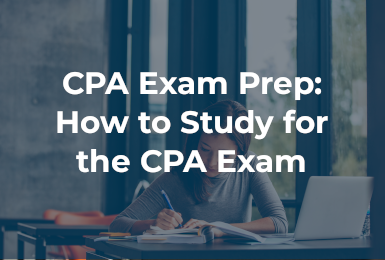Accounting is a rapidly expanding field, with high forecasts for rapid growth over the next few years. According to the Bureau of Labor Statistics, there will be an average of 130,800 openings for accountants and auditors each year for the next 10 years.
This means that if you are interested in joining this booming field, or are already working in it but are looking to take the next step in your accounting career, now is the time to get started. One of the best ways find a great job in accounting is to focus on your technical accounting skills and abilities. Because so many people in accounting-related fields do not have formal training, and because so many of the accounting positions available require a credential (such as a bachelor's degree, certificate, or even a master's degree), having a set of well-honed skills in accounting will help you stand out from the competition and find success in this in-demand field.
11 Key Accounting Skills
Because accounting is such a large and complex field, with many opportunities for specialization, no two accounting jobs look exactly alike. Because of this, it can be challenging to determine the top accounting skills and abilities professionals need to have in their back pockets. However, most individuals will need to have a general set of accounting job skills that translate across all areas of the field.
Knowledge of Accounting Practices
A strong understanding of accounting principles, including Generally Accepted Accounting Principles (GAAP), is essential for accountants. GAAP ensures consistency and accuracy in financial reporting, helping organizations maintain transparency and compliance. Accountants must apply these principles when preparing financial documents, such as income statements, balance sheets, and cash flow reports, to ensure the financial health of the organization.
Ability to Prepare Financial Statements
The ability to prepare accurate financial statements is a cornerstone of accounting. Accountants must compile and analyze financial documents like income statements, balance sheets, and cash flow reports to provide a clear picture of an organization’s financial health. These statements are critical for effective financial reporting, helping stakeholders make informed decisions about the business.
Analytical Skills
Analytical skills are crucial for accountants, who must excel in financial analysis, critical thinking, and problem-solving. Beyond number-crunching, accountants interpret financial data, analyze its impact on the organization, and develop integrated solutions. They must think creatively, understand accounting's relevance to organizational health, and perform risk analysis. These skills enable accountants to identify challenges, make informed decisions, and contribute to the overall success of their organizations.
Organizational Skills
Organizational skills are essential for accountants, who must be detail-oriented, manage large volumes of data, and ensure every transaction is accurately recorded. They oversee multiple systems requiring regular updates, plan ahead for deadlines, and excel in time management. Accountants must maintain this high level of organization even under pressure, especially during demanding periods like tax season.
Proficiency in Accounting Software and Applications
Modern accountants must be proficient in accounting software and information technology. They need to be computer-savvy and comfortable with various accounting information systems, finance-related software, Microsoft Excel, and data modeling programs. Accountants should be able to manipulate, extract, and analyze data from multiple platforms, often using them in conjunction to gain a comprehensive view of an organization's finances. Developing expertise in specific applications or systems can give accounting professionals a competitive edge in their careers.
General Business Skills
Modern accountants need skills beyond traditional accounting competencies. As they play larger roles in organizations, providing strategic guidance across departments, accountants must expand their general business knowledge. Hiring managers seek professionals who are not only technically proficient in accounting but also demonstrate broader skills. A survey of CFOs revealed that they value employees with general business knowledge, communication skills, leadership abilities, and customer service orientation, in addition to core accounting expertise.
Audit and Compliance Knowledge
Audit and compliance knowledge is vital for ensuring that financial documents adhere to regulatory standards and accounting principles. Accountants must be skilled in conducting audits, identifying discrepancies, and ensuring compliance with tax regulations and GAAP. This expertise helps organizations maintain accuracy in their financial reporting while avoiding potential legal or financial risks.
Forensic Accounting Skills
Forensic accounting skills enable accountants to investigate discrepancies, detect fraud, and analyze complex financial data. This specialized skill set involves examining financial documents, such as tax returns and balance sheets, to uncover irregularities. Forensic accountants play a crucial role in maintaining organizational integrity and ensuring compliance with accounting principles.
Attention to Detail
Attention to detail is critical in accounting, where even small errors can have significant consequences. Accountants must meticulously review financial documents, such as income statements and tax returns, to ensure accuracy. This precision is essential for maintaining the organization’s financial health and ensuring compliance with accounting standards.
Problem-Solving Skills
Accountants must possess strong problem-solving skills to address challenges like cash flow issues or discrepancies in financial statements. By analyzing data and collaborating with team members, accountants develop practical solutions that support the organization’s financial health. These skills are particularly valuable in managerial accounting, where strategic decision-making is key.
Critical-Thinking Skills
Critical thinking skills are essential for accountants tasked with interpreting complex financial data and making strategic decisions. Whether preparing financial models or analyzing balance sheets, accountants must evaluate information holistically to identify trends, solve problems, and guide organizational success. These skills also enhance collaboration with team members across departments. This revised copy incorporates the relevance builder keywords seamlessly while maintaining clarity and professionalism.
Developing Your Technical Accounting Skills & Abilities
Now that you know the key skills for accountants, you're most likely wondering how you can develop them yourself. While many skills in accounting can be obtained over time, through experience on the job, obtaining additional credentials is an important way for accounting professionals to establish their authority and expertise in the workforce.
One of the best ways to develop accounting job skills is to pursue a degree or certificate through an accredited higher education institution. If you're looking to change careers and enter the accounting field, an undergraduate degree might be a good choice to help you develop the skills you'll need to make the shift.
Pursuing an online bachelor's degree in accounting offers a flexible solution for busy professionals. With 100% online programs, you can advance your technical accounting skills and career aspirations while maintaining your current job, studying from home, or during work breaks. Online education provides an accessible pathway to achieving your professional goals without disrupting your existing commitments.
Download Program Guide
Learn what you can expect from our online bachelor's in accounting program.

Download Program Guide
I acknowledge that, by clicking the "submit" button, I am giving my express written consent to Champlain College and its representatives to contact me about educational opportunities via email, text, or phone, at the phone number above, including my mobile phone, using an automatic dialer, or pre-recorded message. Message and data rates may apply. I understand that my consent is not a requirement for enrollment, and I may withdraw my consent at any time.






